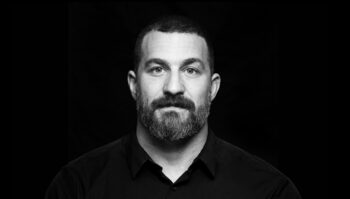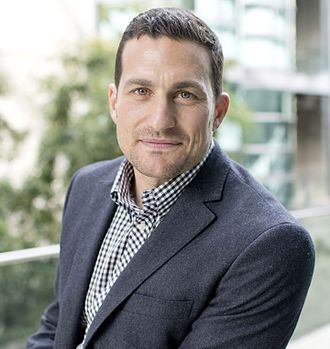Blockbuster podcaster Andrew Huberman – who brandishes a PhD to make brain science accessible to the general public – has reaffirmed his faith in God recently, though he came up short on clarifying which religion he subscribes to.
“I’ll go on record, I’m very comfortable saying I believe in God,” said the associate professor of Stanford University on a Cameron Hanes podcast. “There are many things science can explain and many things science can’t explain. All the elements of science are entirely compatible with the idea of there being a God.”
Huberman hinted that he follows and believes in the God of Christianity when he affirmed that he’s studying the Bible: “I’ve actually started reading the Bible recently,” he says. “I feel like it’s my duty to learn and compare the Old Testament with the New Testament.”
 He discreetly danced around the question of which God he prays to, probably because he was afraid to scare off listeners (on whom his livelihood depends), whether Christian or otherwise. His circle of friends — fitness and growth podcasters — tends to believe in an ill-defined “higher power.”
He discreetly danced around the question of which God he prays to, probably because he was afraid to scare off listeners (on whom his livelihood depends), whether Christian or otherwise. His circle of friends — fitness and growth podcasters — tends to believe in an ill-defined “higher power.”
But his faith affirmation is still significant because of his bonafide scientific credentials (so many PhD-holders in the last three decades held that science undermined faith) and because of his sway over a vast swathe of worldwide listeners (Huberman has 4.38 million subscribers on YouTube alone).
Andrew Huberman says he grew up in a religiously diverse home. But the different faiths in his home, or lack thereof, did nothing to discourage him from praying “secretly.” In his late teens, he jogged down to Sands Beach in Santa Barbara, where he prayed.
 “I absolutely pray. We can’t control everything,” he says. “I pray out loud in the morning and sometimes again in the middle of the night… Prayer has given me peace. And this is going to sound weird and people are going to say ‘What are you talking about?’ but it works. There were certain things I was grappling with that I couldn’t resolve.”
“I absolutely pray. We can’t control everything,” he says. “I pray out loud in the morning and sometimes again in the middle of the night… Prayer has given me peace. And this is going to sound weird and people are going to say ‘What are you talking about?’ but it works. There were certain things I was grappling with that I couldn’t resolve.”
Since the Scopes trial in 1925, faith and science have increasingly been cast as polar opposites in the media and academia, with the notion that scientists don’t and can’t believe in superstitious things like faith. In a milieu where Christian scientists were frozen out of the best publications and professorships, many stayed mum.
But in recent years, scientists are increasingly vocal about their faith in God, insisting that the dazzling display of Creation is too overwhelmingly complicated and precise to have been spontaneously generated (see also James Tour and Francis Collins, for example).
“I’m not he first to say it. Einstein believed in God,” Huberman says. “Carl Jung, one of the greatest psychologists ever, clearly believed in God.”
 Contrary to the notion that science undermines faith, these scientists are discovering that the empirical evidence, in fact, points to God’s existence.
Contrary to the notion that science undermines faith, these scientists are discovering that the empirical evidence, in fact, points to God’s existence.
“I think the brain represents the apex of the incredible in biology,” Huberman says. “The brain is unbelievable – I mean the number of ways you can move your body compared to other species. It’s just incredible that we sitting here having this conversation – it’s just language and these little sound waves are perceived and understood.”
Huberman says prayer especially helped him to process the death of three mentors. One died by suicide and another, cancer. Prayer helped him realize there’s a plan (even though he may ignore it) and a purpose (take their message and apply it) to everything, he says.
Huberman has recently stepped up his prayer and Bible-reading at the insistence of some friends, he says, because he saw the connection with training in fitness.
“I always wanted to have a deeper relationship to God, and I was like why don’t I have that?” he relates. “Well, duh. That’s like saying, I want to be fit when you’re not running, you’re not lifting, you’re not eating properly.”
Huberman received his PhD from UC Davis in neuroscience in 2004.
“The magnificence of biology and the magnificence of nature (makes) it impossible for me to conceive how that could come to be, come about it any other way,” Huyberman says. “I’m in absolute awe of biology.”
To learn more about a personal relationship with Jesus, click here
About this writer: Michael Ashcraft is a financial professional in California.





[…] Since the Scopes trial in 1925… Read the rest: Does Andrew Huberman believe in God? […]
[…] acordo com God Reports, o neurocientista, com mais de 4,38 milhões de assinantes no YouTube, destacou que a oração o […]
Comments are closed.